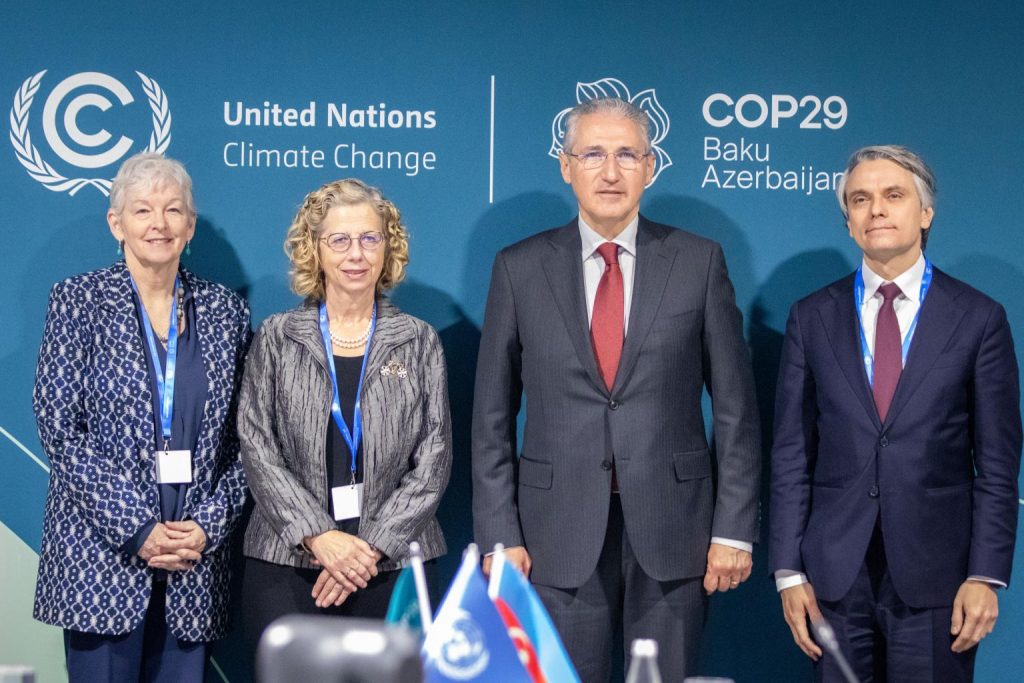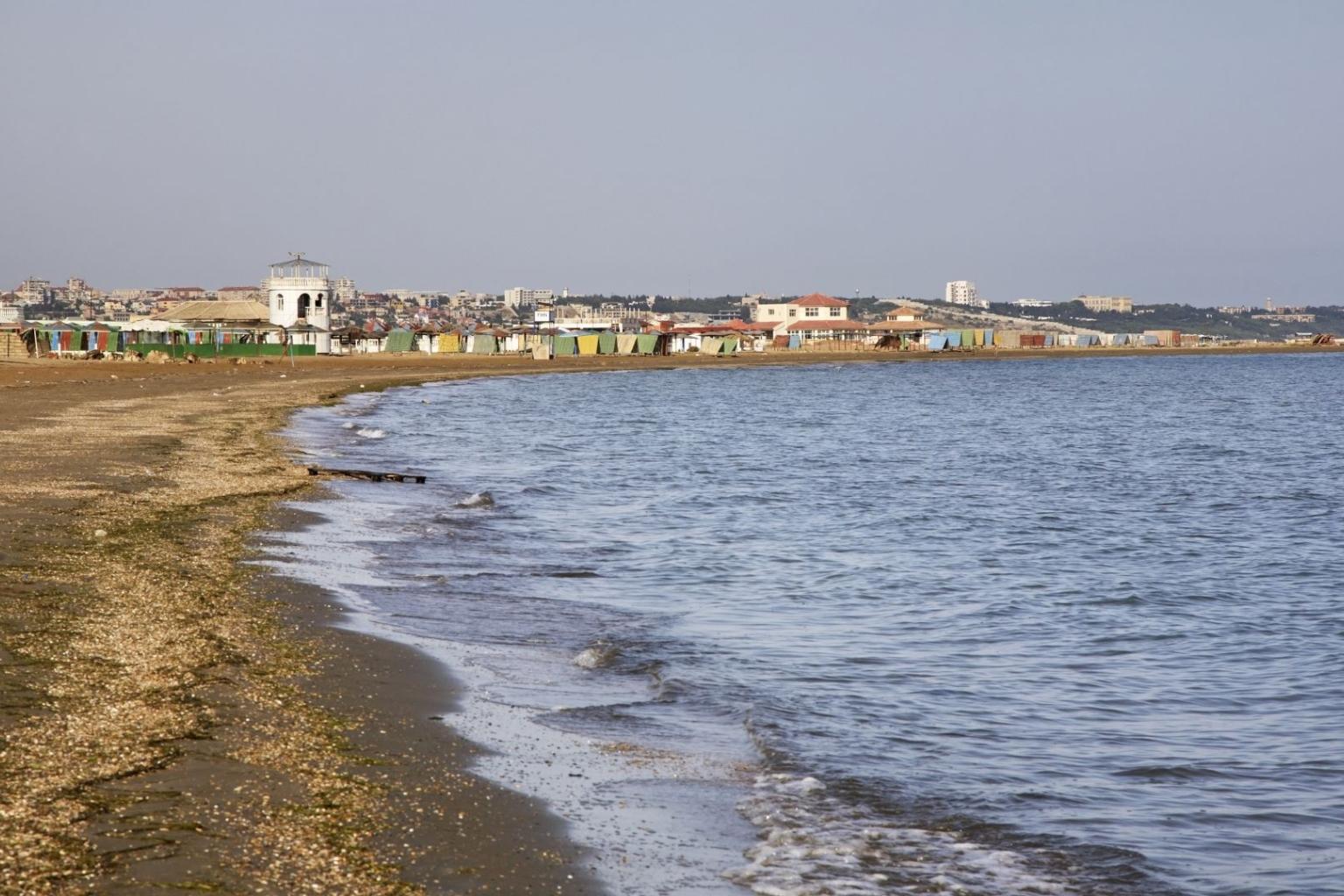Water is an Integral Part of the Global Climate Agenda
The COP29 Declaration on Water for Climate Action has been issued by the Azerbaijan Presidency in order to anchor water more firmly within the global climate agenda.
The Baku Dialogue on Water for Climate Action is intended to provide continuity between the annual UN climate negotiations and promote coherence and collaboration. It aims to ensure a consistent focus on water and its interplay with climate change, biodiversity loss, pollution, and desertification, focusing on actions at the international, regional, river and basin levels.
Water is not just a victim of climate change but it is also a vital solution. Water is at the heart of achieving many Sustainable Development Goals. Without water, there is no sustainable development. Water must be integrated into full aspects of the global climate agenda.
Mukhtar Babayev, COP29 President
He said that the Caspian Sea – the world’s largest inland water body and an integral part of Azerbaijan’s national identity and economy – is shrinking, alongside the degradation of biodiversity. “This is an alarming prospect,” he said.
WMO is one of the founding partners of the Baku Dialogue on Water for Climate Action, which will be hosted by the UN Environment Programme.

The Baku Dialogue declaration resolves to:
- promote dialogue and partnerships among countries at international, regional, river and basin levels,
- strengthen the generation of scientific evidence on the causes and impacts of climate change on water resources, water basins and water-related ecosystems,
- enhance water-related climate policy actions.
It received a ringing endorsement from speakers at a high-level side event in the closing stages of COP29.
WMO’s State of Global Water Resources reports show that the water cycle is spinning out of control, becoming more erratic, more unpredictable and more extreme.
Freshwater resources are increasingly under pressure from rising societal demands, environmental degradation and climate change.
2023 was the driest for rivers globally in more than three decades of records. Almost half of the planet experienced lower than normal annual river flows. The world’s glaciers experienced their largest mass loss in almost fifty years of record-keeping. This is a worrying omen for future water security for billions of people.
WMO Deputy Secretary-General Ko Barrett
“Water is at the heart of the international disaster risk reduction agenda and the Early Warnings for All initiative. This is essential, given that water-related hazards are the leading cause of human and economic losses in many countries,” she said.
Water is vital for climate change mitigation as a key enabler of greenhouse gas emission reductions. Water supports renewables like biofuels, hydropower, and is needed for cooling of low-emission power plants. Finally, water is essential for hydrogen and for producing minerals vital for battery technology.
“This makes the necessary green energy transition a thirsty business and is why we need integrated water and climate policies,” said Ko Barrett.
WMO Role
WMO will be a committed partner in implementation of the Baku Dialogue.
As the specialised UN agency for weather, climate and water, WMO will leverage its
mandate to support informed decision-making. National Meteorological and Hydrological Services need to play a crucial role in integrating water data and information into development policies for informed decision-making. This builds on the expertise of WMO’s national hydrological advisers.
WMO is co-coordinator of the UN-Water Expert Group on Water and Climate Change, and offers comprehensive support to the UN System-wide Strategy on Water and Sanitation.
Improved water monitoring and data sharing is vital in order to improve integrated management of water resources.
Increased funding is essential to enhance water monitoring systems, implement early warning systems, and build resilience in communities vulnerable to water stress and extreme events.
The need for water action
The impacts of climate change are felt through water.
- One-fifth of the world’s river basins are experiencing rapid changes in the area covered by surface waters
- Glaciers have suffered the largest mass loss in 50 years.
- Around 2.2 billion people still do not have access to safe drinking water, 3.5 billion lack access to safely managed sanitation,3 and at least 50% of the world’s population — around 4 billion people — live under highly water-stressed conditions, with the most vulnerable hit the hardest.
- Over 90 percent of disaster-affected people and nearly 95 percent of infrastructure loss and damage were impacted by water-related disasters, while floods are one of the major sources of water pollution, threatening water quality and human health and safety.
The economic impacts of climate change on water resources are significant. Some regions could experience GDP declines of up to 6% by 2050 due to water-related impacts on agriculture, health, and incomes.
Without mitigating actions, global GDP could decrease by up to 18% by mid-century if temperatures rise by 3.2°C. These findings underscore the substantial economic risk posed by climate-induced disruptions to the hydrological cycle.
Nationally Determined Contributions
Integrating water management and cooperation into national climate policy, such as Nationally Determined Contributions and National Adaptation Plans, is crucial for effective climate adaptation and mitigation.
Understanding water availability and constraints can assist in deciding on climate change response options and guide the design of projects, reduce project risks and hence costs – a key issue as NDC 3.0 are being prepared.
Such integration also ensures a coordinated approach to managing shared water resources, enhancing resilience to climate impacts, and promoting sustainable development.
It allows countries to address water security, improve public health, and reduce climate-related vulnerabilities comprehensively across water dependent sectors.
By incorporating these elements into national climate policies, countries can leverage international cooperation to achieve their climate goals and ensure the provision of essential services.
(Source: World Meteorological Organization)

